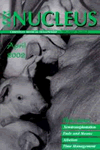This short, easily read and very challenging book is not to be missed by any Christian medic! The introduction gives a brief historical overview of how our country has shifted in its thinking over recent decades. There has been a change from a culture of life to a culture of death.
The second chapter looks at the biblical themes underlying Christian bioethics; that human life is unique and special because we are created in the image of God, that innocent life is not to be taken and that all human life is in need of special care. The author cites Exodus 4:10-12, where God declares that he makes the deaf, blind and dumb as well as the healthy; also Leviticus 19:14, which shows God's particular interest in the cause of the vulnerable and weak.
The book then moves on to cover concisely abortion, cloning, IVF, euthanasia, surrogacy, embryo experimentation and human genetic engineering. Background information and a Christian response is given to each issue. It is not intended to be exhaustive, but rather to act as a launch pad to get us thinking. I found this part of the book particularly helpful because some of the newer issues (for example genetic engineering) can be hard to gain an understanding of.
There is a helpful chapter devoted to the question of 'where does life begin?' It covers all schools of thought but comes to a firm conclusion that life begins at conception. The author points out that unless we have come to a firm conviction of our position on this issue, we cannot grapple with any of the others.
Another chapter is devoted to the history of the Abortion Act (1967), the Warnock Report (1984) and the Human Fertilisation and Embryology Act (1990). It reviews the factors that influenced shifts in thinking and policy, such as the pivotal case in abortion law, R v Bourne (1939) which stretched the legal justification of saving the mother's life to include preservation of mental health.
Finally, the best thing about this book is that it does not allow you to take only an academic interest. It urges practical application; to pray, to be salt and light (writing letters to MPs, newspapers etc) and to care.
Reviewer:
Abigail Howgego
Editorial Comment
Abigail has been putting her theory into practise by having a letter on abortion published in the March 2002 Student BMJ (p80).































